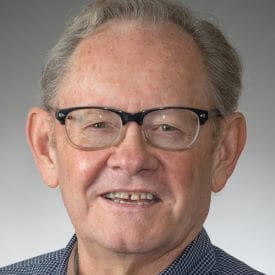Master’s Concentration
Professional Fiction Writing: Master’s Degree
Broaden your imagination and share your story through the written word. From short stories to novels, examine the art of writing fiction and develop an authentic voice and style. You’ll learn to create a personal presence in the creative marketplace while honing your fiction writing expertise. Develop a deeper understanding of genres and influential masterworks as you strive to become a published author.
Let us help you succeed.
*Indicates a required field.
Top-ranked, career-focused education in a flexible format.
At a Glance
Classes Begin
March 31
Term Length
10 Weeks
Master's Tuition
$835 per credit hour
Format
Asynchronous and Hybrid Online
Admission
No GRE or GMAT
Duration
As few as 18 months

Top-Ranked University by U.S. News & World Report

Connect with an Advisor
Chris Heriza
Text Me at 303-900-0375
Email Me
Call Me
Schedule an Appointment
Skills You’ll Learn
Identify and analyze key elements of strong fiction
Produce fiction writing that connects with the audience for your work
Apply professional editing standards to evaluate both published writing and writing for your peers
Curriculum
Master of Arts in Professional Creative Writing with a concentration in Professional Fiction Writing requires completion of 48 credit hours (12 courses).
5
Core Courses
4
Concentration Courses
3
Elective Courses
Featured Instructors
Sample Schedule
Plan out your schedule and determine your preferred timeline for completing your master's degree—finish in as few as 18 months or take up to five years.
Interested in a graduate certificate?
Explore our four and six course graduate certificates in Professional Fiction Writing.
Take a Course Before You Apply
We know how important it is to get started when you’re ready and that’s why you can enroll in a course before you officially apply.
Career Outcomes
Predicted outcomes for graduates of Professional Fiction Writing
According to Publishing Perspectives, 81% of Americans want to write a book, but how many actually possess the skills and determination to achieve the dream?
According to the Association of American Publishers, the U.S. book and journal publishing industry generated $28 billion dollars in revenue last year, massive growth primarily due to the increasing popularity of audiobooks.
The International Trade Administration Top Market Reports found that the U.S. publishing industry is the largest in the world. PwC forecasts that total global consumer book revenue will continue its upward trajectory.
Job Titles
Writer and Author Salary: National Average
$61,820
(U.S. Bureau of Labor Statistics)
Get Ahead with Career Services
One-on-one career coaching and mock interviews
Job database dedicated to DU students and alumni
Résumé and cover letter guidance
Hear from Our Students
Theme: Job Satisfaction
Professional Creative Writing
“The writing assignments at that level really helped elevate my writing. It made me more keenly aware of the editing process as well as some more practical purposes.” —Bobby LeFebre, graduate.
Flexible Online Classes
We understand the demands of balancing work, friends and family, and school can be challenging. That's why at University College, you can complete your program entirely online. Our online learning platform makes it easy to work anywhere at any time.
Accreditation
Higher Learning Commission
University College programs maintain the highest level of accreditation offered by The Higher Learning Commission, one of the regional accrediting bodies recognized by the federal government. The University of Denver and all of its academic programs are regionally accredited by this commission, and regional accreditation is the highest standard for universities in the United States.
Take the Next Step










